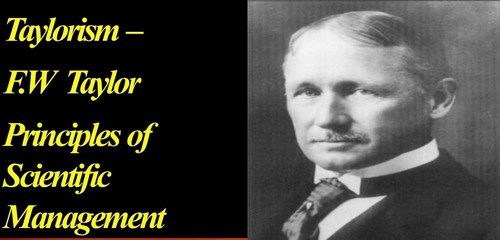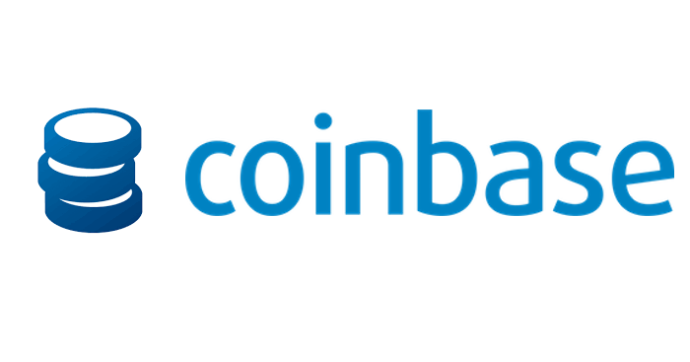
Another core feature of laissez-faire economics is the principle of a free market economy. Essential to a free market economy is the law of supply and demand, that prices will naturally be set by how the participants in an economy produce and consume products. Freedom is important in this system because private entities must be allowed room to operate in an economy without being placed under the control of a state. Private entities in a free market economy are thus free from the dictates of a government in terms of what to produce and what to consume. In contrast to a free market economy, a command economy is a system under which a government controls the production and consumption of goods as well as their prices.
In this way, laissez-faire principles seek the ‘trickling down’ of wealth throughout the economy through limiting direct government involvement. The basic purpose of the laissez-faire economy is to promote a free and competitive market that demands the restoration of the order and natural state of liberty that humans emerged from. A laissez-faire economy is thus characterized by the free movement of forces of supply and demand, free from any form of intervention by a government, a price-setting monopoly, or any other authority. Economic theorist Adam Smith believed that the optimal functioning of markets needed minimal government intervention.
The phrase was later picked up by capitalists as a catchy and convenient summation of the principle of less government intervention in the economy. One of the main criticisms of laissez-faire economics is that it promotes inequality and monopolization as a few people and companies tend to secure wealth and the means of production without government intervention. Famous economist John Maynard Keynes also believed that laissez-faire economics were unsustainable because of their propensity to facilitate market instability, as seen in the 1929 market crash that led to the Great Depression. The pervading theory of the 19th century was that individuals, pursuing their own desired ends, would thereby achieve the best results for the society of which they were part.
Laissez Faire and Economic Growth
However, a number of negative events in the United States have been blamed on laissez-faire ideas, including the infamous Wall Street Crash of 1929 and its aftermath, the Great Depression. At that time, President Herbert Hoover sought to restore the US economy by having the government play a passive, non-interventionist role in the economy. Many believe that this laissez-faire approach contributed to the worsening of the Great Depression, which reached its peak in 1932 and 1933. Laissez-faire economics what is the laissez faire view point refers to an economic theory that has had a significant influence on the development of modern economies and on the scholarly field of economics. Although it involves various ideas and concepts, at the core of a laissez-faire definition lies the idea that governments should let the economy function naturally. This argument is used by proponents of laissez-faire against other notions of what the government’s relationship to an economy should be, as seen in the perspectives of mercantilism and socialism.
In this Liberty Pen video, Milton Friedman and Donald Rumsfeld argue in favor of free-market economics in a debate. In the first half of the twentieth century, laissez-faire was often quoted as the cause of monopolies and the boom-and-bust cycles of economies. President Reagan and Prime Minister Thatcher were strong proponents of laissez-faire economics. A laissez-faire economy fails to be representative of the interests of all sections of a society; it may cater only to the majority or the affluent class. Thereby, public goods with positive externalities such as education and healthcare may not be equally distributed in society, whereas goods with negative externalities may be over-consumed.
British Dictionary definitions for laissez faire
Keynesianism attracted wide support and influenced government fiscal policies in many countries. Later in the 20th century, the notion of laissez-faire was revived by the school of monetarism, whose leading exponent was the American economist Milton Friedman. Monetarists advocated carefully controlled increases in the rate of growth of the money supply as the best means of achieving economic stability. Beyond the idea of less government intervention, there are two main principles that make up key parts of laissez-faire economic policy. Laissez-faire economics is inseparable from capitalism, the economic system which came to dominate the global economy in the 20th century. Another core part of laissez-faire economics includes the idea of a free market economy.
Laissez-faire (in French, “let [it/them] do”) is the belief that the government shouldn’t regulate the markets and should instead let the economy run by itself, driven by the natural forces of supply and demand. Secondly, conservatives are sympathetic towards laissez-faire capitalism because they feel it benefits everyone. This particular line of argument relates to an economic term called the trickle-down effect. The economic activity generated by those on high incomes is advantageous for all members of society due to economic growth, greater levels of consumer choice and an increase in investment. Whilst the result of the trickle-down effect is an uneven distribution of wealth and income, conservatives take the view that such an outcome is both inevitable and desirable.
Capitalism
Information is from sources deemed reliable on the date of publication, but Robinhood does not guarantee its accuracy. Today, most governments of the rich nations accept that too much government intervention harms the economy. The system works optimally when there is a complementary relationship between different people’s needs and desires, without government interference or trade restrictions, which create artificial barriers to achieving individual goals. In the late 19th century, the changes caused by industrial growth and the adoption of mass-production techniques demonstrated that the laissez-faire doctrine was insufficient as a guiding philosophy. As a result, they oppose any sort of federal involvement in the economy, which includes any type of legislation or oversight; they are against minimum wages, duties, trade restrictions, and corporate taxes. In fact, laissez-faire economists see such taxes as a penalty for production.

It makes sure no one is manipulating the markets and that all have equal access to information. Commission-free trading of stocks, ETFs and options refers to $0 commissions for Robinhood Financial self-directed individual cash or margin brokerage accounts that trade U.S. listed securities and certain OTC securities electronically. Keep in mind, other fees such as trading (non-commission) fees, Gold subscription fees, wire transfer fees, and paper statement fees may apply to your brokerage account. A public company is a corporation that’s owned by external shareholders and trades company shares to members of the public on a stock exchange or securities market. A tax return is a document that most people must file annually with the government to report their income and calculate tax liability. A bank is an institution that accepts deposits, protects customers’ money, extends loans, and provides other financial services.
The Depression worsened during his tenure, and critics increasingly portrayed him as a person who didn’t care about the suffering of the American people. The Conservative Party has consistently sought to present itself as offering help to hard-working individuals and families. In order to back up this argument, one might consider polices such as providing mortgage tax relief to the sale of council homes at a substantial discount. The popularity laissez-faire economics waned when Keynesian policies of interventionist government spread during the Great Depression of the 1930s. The economic concept can be traced back to 18th-century French physiocrats who believed that self-interest was the motivation for each segment of the economy to play its part.
Laissez-faire and individuals
Even Adam Smith and his fellow classical economists saw a need for a government role in a country’s economy. According to Thomas Hobbes, the presence of absolute autonomy in a state-of-nature economy creates a situation of chaos for both producers and consumers. Such an economy can lead to inequality of income and wealth that may contribute to a vicious cycle wherein inheritance plays a key role in financial placement within society. As put forward by Adam Smith, monopolies can emerge wherein they control supply, charge higher prices, and pay lower wages to workers. Protectionism refers to any government regulation or policy that limits international trade.
- Before making decisions with legal, tax, or accounting effects, you should consult appropriate professionals.
- The driving principle behind laissez-faire, a French term that translates to “leave alone” (literally, “let you do”), is that the less the government is involved in the economy, the better off business will be, and by extension, society as a whole.
- It makes sure no one is manipulating the markets and that all have equal access to information.
- He didn’t intervene and vetoed any bills proposed to correct the situation.
- The individual is much more likely to respect their own and others property as opposed to the bureaucratic hand of the state.
These laws are pivotal to the market system of the United States, which embodies many principles of laissez-faire economics. In particular, the Constitution explicitly protects negative rights, which means a freedom from something like government interference, as opposed to positive rights, which means a right to something like healthcare or education. This emphasis of negative rights over positive rights reflects how capitalist and laissez-faire principles are embedded in the American system of government and its economic system. Laissez-faire economics is distinct in part because of its peculiar name. Colbert ostensibly had asked Legendre how he could help their financial situation, and ‘let it be’ (‘leave us alone’) was the answer.
Critics of laissez-faire use this period of our history as an example to show that economic crises are likely to happen when markets are left unregulated. After Hoover assumed office, a drop in the value of the stock market made the economy take a turn for the worse. Banks and businesses failed, and the rate of unemployment increased from 3% in 1929 to 23% in 1932. He didn’t intervene and vetoed any bills proposed to correct the situation.
Protectionist policies foster domestic production and help the working class, but are detrimental to the overall growth rate of the economy, as they hinder competition. The 20th-century British economist John Maynard Keynes was a prominent critic of laissez-faire economics, and he argued that the question of market solution versus government intervention needed to be decided on a case-by-case basis. Laissez-faire economics is a theory that says the government should not intervene in the economy except to protect individuals’ inalienable rights.

Aggregate demand is an economic concept that measures the total market for every good and service that an economy produces. The first advocates of laissez-faire proposed a tax on land rent – Impôt unique – to replace all taxes that undermine welfare by penalizing production. Proponents of laissez-faire economics believe that each individual human being is best suited to determine what goods they want and require, and how to go about getting them through work. Laissez-faire is a free-market economic system of thought where the players are free to act without interference from the government.
History of Laissez-Faire
Put simply, the law of supply asserts that, as a price for a product rises, more people are willing to supply or produce that product. On the other hand, the law of demand argues that, as a price for a product rises, fewer people are willing to demand or buy that product. The interaction of these two principles results in how prices for items are set, as well as what quantity of a given item will be produced. Laissez-faire economics believes that this natural interaction of supply and demand should mostly be left alone by governments, which should refrain from intervening in the economy because doing so would interrupt the natural market equilibrium. Laissez-faire is the belief that the government shouldn’t interfere in the market. People make choices depending on their tastes, needs, and rational self-interest.
Procurement Perspectives: The question of management style … – Daily Commercial News
Procurement Perspectives: The question of management style ….
Posted: Tue, 08 Aug 2023 08:35:53 GMT [source]
In the 1987 movie “Wall Street,” Michael Douglas as Gordon Gekko summed up the philosophy of laissez-faire capitalism when he famously said, “Greed, for lack of a better word, is good.” Former U.S. President Herbert Hoover was a famous proponent of laissez-faire policies. His commitment to a balanced budget in the face of the 1929 stock market crash turned the recession into the Great Depression.



Leave A Comment